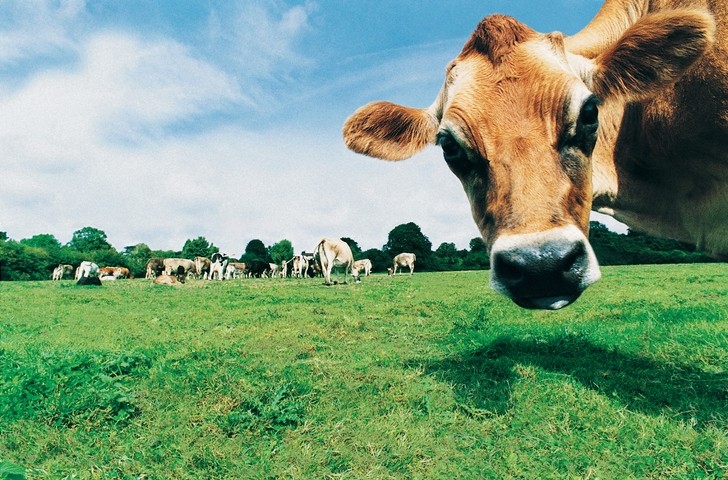Conversations about careers: Dairy nutrition researcher

The groups awarded him the 2019 AFIA-ASDA Nutrition Research Award for the contribution his work on fatty acid digestion and dairy nutrition has made to the industry.
FeedNavigator: What is your background?
Adam Lock: I am from a dairy farm myself in Devon, in the southwest of England. I thought all along I would go home and work on the farm and my mum and dad kept pushing and encouraging me to carry on with my education.
FEN: How did you get into the field of dairy nutrition research?
AL: I did undergrad at the [University of] Nottingham [in] animal science [and] in, January 2003, I moved to Cornell [University] for a post-doctoral position. I was offered a faculty position at the University of Vermont, which was a good stepping stone, and then I [took on] the position at Michigan State … in September I will have been here 10 years.
FEN: Can you tell us about the dairy nutrition research work you have done to date?
AL: My research from my PhD on has always been lipids and fatty acids based, that is my broad umbrella, so fat digestion or metabolism in dairy cows. I did a lot on milk fat depression and [looking at why] the bulk tank on a dairy farm suddenly drops from 3.8 or 3.9% down to a 3.5% milk fat. I still do a lot of work in that area, diagnosing issues there.
We have much a better understanding of the interrelationship between the diet - what we feed the cow - and management - how we [handle] the cow, and how that influences the rumen, how what happens in the rumen with fatty acids impacts milk production, particularly milk fat production, and potentially body weight gain as well.
There is growing interest in fat supplements in dairy cow diets. You cannot just interchange fat supplements based on price. We are really starting to understand how different fatty acids in the cow’s diet have differing effects in the rumen, in the small intestine, and in the mammary glands, and now we have some exciting work on adipose tissue as well.
FEN: What topics or areas are you considering in your current research?
AL: Instead of just thinking about crude fat in the diet, or ether extract in the diet, [it is important to look at] which fatty acids cows might be best utilized at different stages of lactation.
Some of the biggest advances we have made recently [have been in getting] people to think about individual and different blends of fatty acids, and also showing how cows at different stages of milk production may perform better with different types of fatty acids in the diet.
One area where we are looking at is the [optimization] of fatty acid absorption in high producing dairy cows, whether there are certain fatty acids we can feed or whether we can provide some additional emulsification capacity that will enable these higher and higher producing dairy cows to absorb more fatty acids, to be used for metabolic purposes. That is one area.
I am very much interested in the fresh cow, and in what we can do from a fatty acid standpoint to maximize production efficiency while also minimizing body weight loss. I am trying to get people to think more about fresh cow nutrition and where fatty acids fit in there.
FEN: What do you see being the biggest challenge facing dairy cow nutrition?
AL: At my level, it is more around getting a better understanding of nutrient digestion and utilization in the cow – how we can feed cows differently. The big benefit we have with ruminant [production] is the fact that the industry is by-product driven. We feed a huge amount of products that are waste products or by-products of other industries, and we can convert non-human edible foods into dairy products.
I think too much time is spent saying this dairy product is better than that one … I think we would be better talking about the health benefits of dairy consumption in general, rather than fighting from within.
FN: What advice would you have for those interested in a career in dairy nutrition?
AL: I would encourage any undergrad interested in a career in dairy nutrition to try to get research experience as an undergraduate, to gain insight into what life in graduate school might be like. I tell my older students that you get out what you put into it and that you have to be passionate about what you are doing.
















